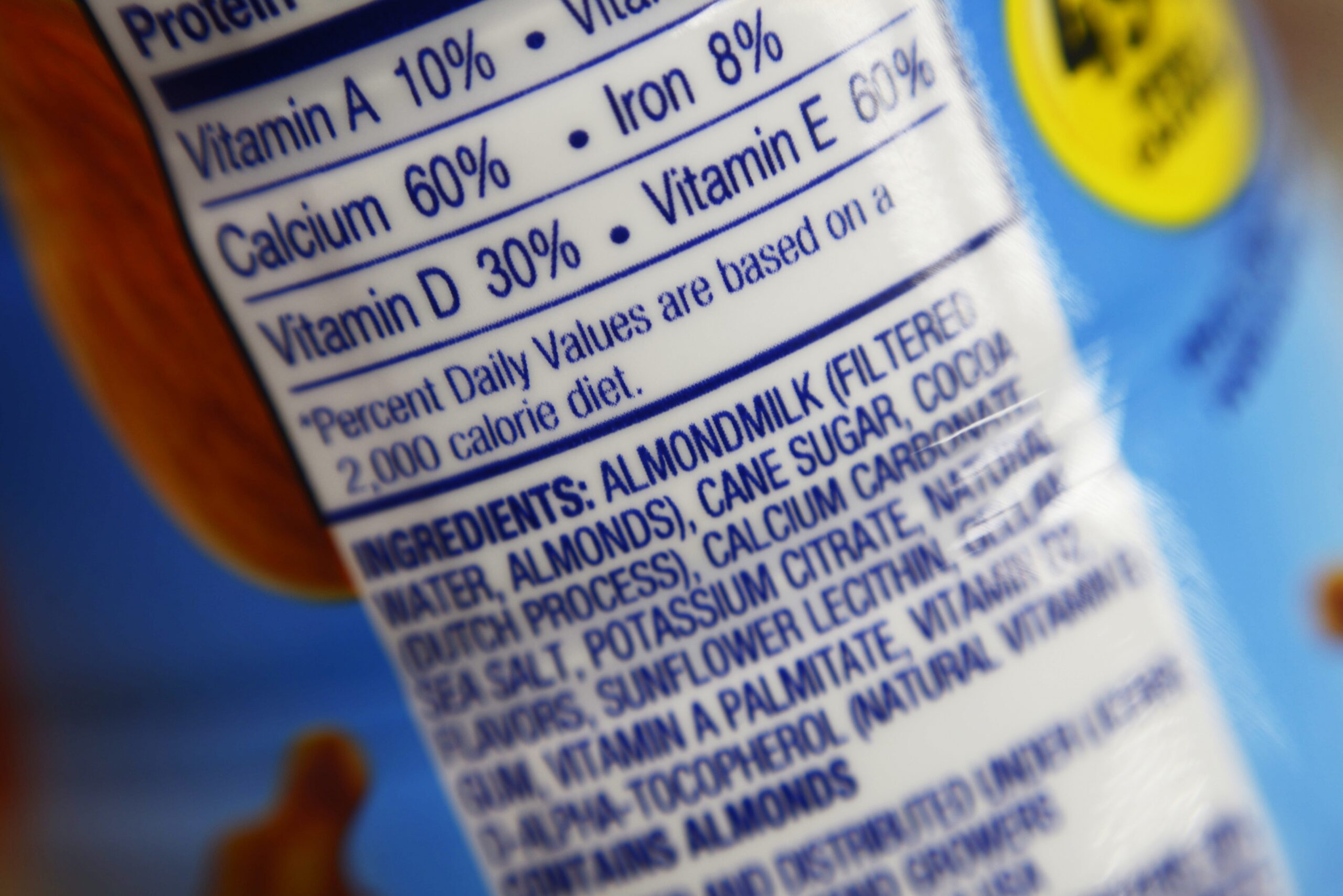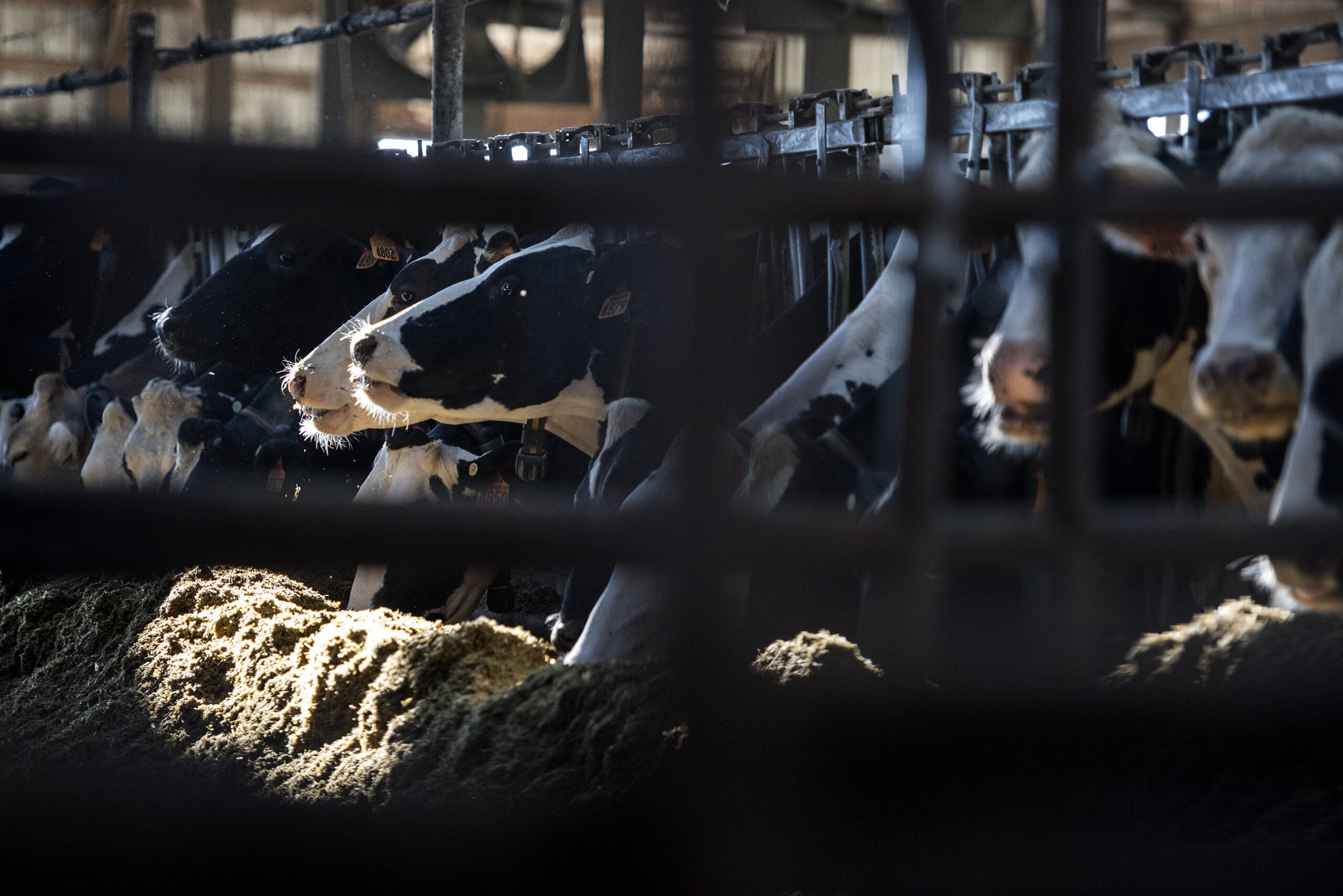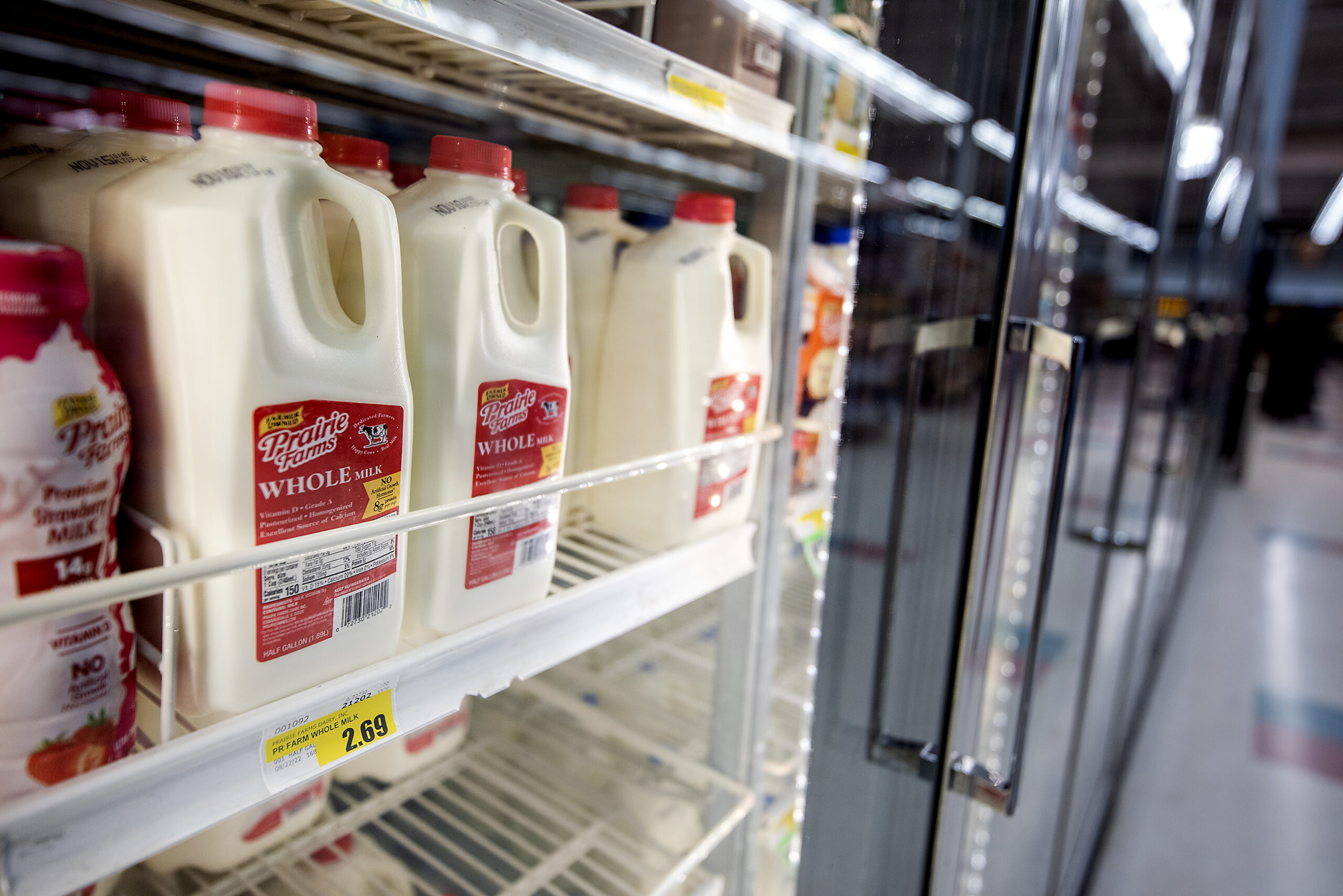Three Wisconsin lawmakers have proposed legislation to keep plant-based or lab-created products from being labeled as “milk” or “meat.”
Sen. Howard Marklein, R-Spring Green, Rep. Travis Tranel, R-Cuba City, and Rep. Loren Oldenburg, R-Viroqua, are circulating three bills that would create strict standards for what products can use meat and dairy terms.
Under the legislation, food sold as meat or a meat product would have to come from the flesh of an animal or any part of an insect. That does not include products made from animal cells in a lab.
News with a little more humanity
WPR’s “Wisconsin Today” newsletter keeps you connected to the state you love without feeling overwhelmed. No paywall. No agenda. No corporate filter.
Another bill would require foods labeled as cheese, yogurt or other dairy products to be made with milk from a cow or another hooved mammal.
The legislation would apply the same standards to products labeled as milk, but only if 10 other states pass similar legislation by 2031.
Marklein said making sure other states have the same standards will help offset problems with interstate commerce. He said the milk labeling bill mirrors laws recently passed in North Carolina and Maryland.
Marklein said the legislation is meant to address consumer confusion about nutritional differences between traditional products and new alternatives.
“You can eat whatever you want to eat and drink whatever you want to drink, that’s fine. But I think the term ‘milk’ should be preserved for what comes out of a mammal’s mammary glands,” Marklein said. “There’s been an awful lot of, I think, confusion in the marketplace as to what the nutritional value of these products are.”
Marklein said he’s hopeful the bills will gain bipartisan support.
Democratic U.S. Sen. Tammy Baldwin has introduced similar legislation regarding plant-based dairy products on the federal level, which would require the U.S. Food and Drug Administration to enforce current food definitions. The FDA took public comment on the dairy labeling issue last year but has not issued a final ruling.
Tom Crave, president of the Dairy Business Association, said his organization sees the new proposals as common sense.
“To try to label something milk or cheese when it really isn’t is misleading, and I think we have to clarify that for everybody, for the industry and for consumers,” said Crave, who owns a dairy farm and cheesemaking business.
Crave said plant-based products should create their own food terms instead of “stealing the identity” of dairy products like cheese or milk.
The Wisconsin Cheese Makers Association also applauded the bills.
“As more soy and nut-based products enter the marketplace, it’s critical that consumers understand exactly what they’re buying,” WCMA Executive Director John Umhoefer said in a press release. “While these products can mimic milk, they cannot deliver the same nutritional benefits.”
But Michele Simon, executive director of the Plant Based Foods Association, said if the bills would pass, the legality of the labeling restrictions would almost certainly be challenged in court.
“That’s depriving consumers of what they want. I mean, how is that good for the state of Wisconsin? It’s draconian,” Simon said. “It’s taking business away in the state of Wisconsin. I’m guessing that’s not such a good thing for the economy there, to remove economic opportunity from the state.”
Three states are facing lawsuits from plant-based food advocates over similar meat labeling laws, including the Plant Based Foods Association’s lawsuit against the state of Mississippi. But Simon said her organization could end up withdrawing the suit after Mississippi officials proposed walking back the regulations earlier this month.
“All of these products in the marketplace have qualifiers. Nobody’s trying to fool anyone,” Simon said. “The result in Mississippi was to acknowledge that, to say yes of course it makes sense that if a meat alternative has a word or phrase like vegetarian, vegan, plant-based, what have you, then that’s reasonable.”
Marklein said he recognizes the legislation could end in a legal battle, but it hasn’t changed his support for the new standards. He said the change would be a win for the state’s dairy farmers.
“They produce wonderful milk, good quality milk and they’re competing with products that are labeled as milk but have no connection whatsoever to the dairy industry,” Marklein said. “For me, it’s a way of supporting our agriculture industry at a time when they really need it.”
But Simon said she thinks there should be room in the marketplace for everyone.
“Wisconsin butter makers can succeed on the merits of their own products,” Simon said. “Convince the consumer to buy your product. I mean, that’s how capitalism works, not to tip the scales by complaining to regulators.”
Wisconsin Public Radio, © Copyright 2025, Board of Regents of the University of Wisconsin System and Wisconsin Educational Communications Board.







